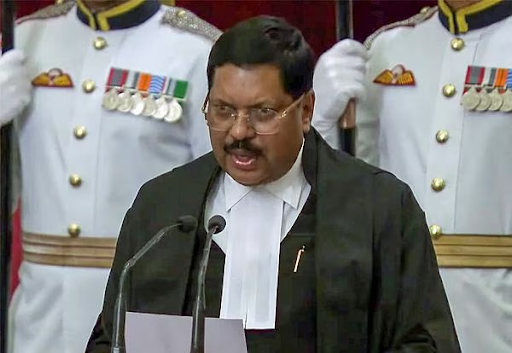Description
.png)
Copyright infringement not intended
Context: The National Commission for Protection of Child Rights (NCPCR) celebrated its 18th Foundation Day on 2nd March 2023.
Details
- The Union Minister for Women and Child Development and Minority Affairs, Smt. Smriti Zubin Irani was the Chief Guest of the event.
- The Minister also launched the “Child Rights Champions World” a dedicated feature on NCPCR’s website on child rights literacy.
.jpeg)
National Commission for Protection of Child Rights
- The National Commission for Protection of Child Rights (NCPCR) is a statutory body established under the Commission for Protection of Child Rights (CPCR) Act, 2005.
- It is under the administrative control of the Ministry of Women and Child Development.
- Under the act, a Child is defined as a person in the 0 to 18 years age group.
- It aims to ensure that all Laws, Policies, Programmes, and Administrative Mechanisms are in harmony with the Child Rights perspective as enshrined in the Constitution of India and also the UN Convention on the Rights of the Child.
- Composition: This commission has a chairperson and six members of which at least two should be women.
- All of them are appointed by the Central Government for 3 years.
- The maximum age to serve in the commission is 65 years for Chairman and 60 years for members.
- The salary and allowances payable to, and other terms and conditions of service of, the Chairperson and Members, shall be such as may be prescribed by the Central Government.
Functions of the National Commission for Protection of Child Rights;
- Examine and review the safeguards provided for the protection of child rights and recommend measures for their effective implementation.
- Inquire into child rights violations and recommend initiating proceedings in such cases.
- Examine all factors that curb the enjoyment of rights of children affected by terrorism, communal violence, riots, natural disaster, domestic violence, HIV/AIDS, trafficking, maltreatment, torture and exploitation, pornography and prostitution and recommend appropriate remedial measures.
- Look into the matters relating to the children in need of special care and protection including children in distress, marginalized and disadvantaged children, children without families and children of prisoners and recommend appropriate remedial measures.
- Study treaties and other international instruments and undertake periodical reviews of existing policies, programmes and other activities on child rights and make recommendations for their effective implementation in the best interest of children.
- Undertake and promote research in the field of child rights.
- Spread child rights literacy among various sections of society and promote awareness of the safeguards available for the protection of these rights through publications, the media, seminars and other available means.
- Inspect or cause to be inspected any juvenile's custodial home, or any other place of residence or institution meant for children, under the control of the Central Government or any State Government or any other authority.
- Inquire into complaints and take suo moto notice of matters relating to:
- Deprivation and violation of child rights.
- Non-implementation of laws providing for the protection and development of children.
- Non-compliance with policy decisions, guidelines or instructions aimed at mitigating hardships and ensuring the welfare of the children and providing relief to such children.
- Such other functions may consider necessary for the promotion of Child Rights.
- The Commission shall not enquire into any matter pending before a State Commission or any other Commission duly constituted under any law for the time being in force.
- Present an annual report to the Central Government and at such other intervals as the Commission may deem fit.
- Compile and analyze data on children.

|
PRACTICE QUESTION
Q. Consider the following Statement with reference to the National Commission for Protection of Child Rights (NCPCR).
1. It is a Constitutional body.
2. It is under the administrative control of the Ministry of Home Affairs.
Which of the following Statement is/are correct?
(A) 1 only
(B) 2 only
(C) Both 1 and 2
(D) Neither 1 nor 2
Answer: D
Explanation:
Statement 1 is incorrect: The National Commission for Protection of Child Rights (NCPCR) is a statutory body established under the Commission for Protection of Child Rights (CPCR) Act, 2005.
Statement 2 is incorrect: It is under the administrative control of the Ministry of Women and Child Development.
|

https://www.pib.gov.in/PressReleasePage.aspx?PRID=1903706




.png)
.png)








